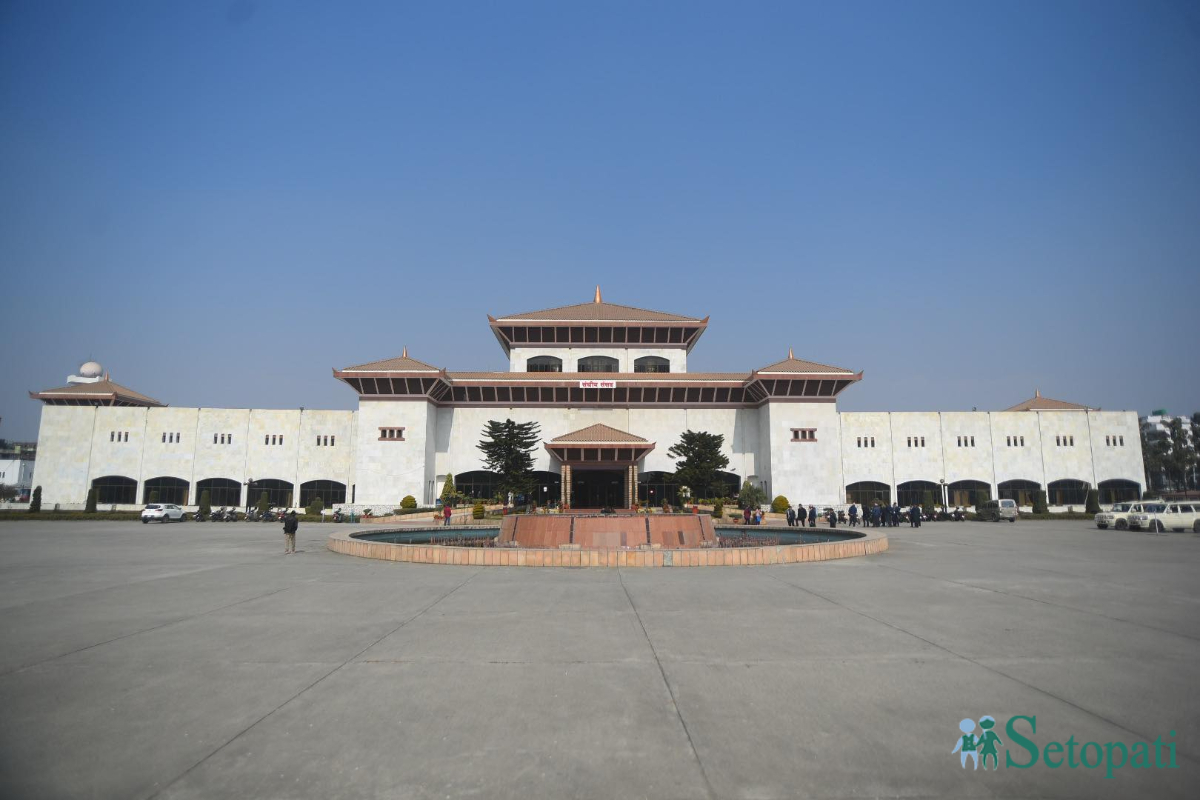Lawmakers have registered motions in both the House of Representatives and the National Assembly to reject six ordinances brought recently by the government.
Lawmakers from opposition parties have filed motions to reject the Ordinance to Amend Some Nepal Acts Related to Promoting Good Governance and Public Service Delivery, 2025; the Economic Procedure and Financial Accountability (First Amendment) Ordinance, 2025; the Privatization (First Amendment) Ordinance, 2025; the Ordinance to Amend Some Nepal Acts Related to Improving Economic and Business Environment and Enhancing Investments, 2025; the Land-related Ordinance; and the Ordinance on Cooperatives.
The government has already presented the ordinances during the House of Representatives and National Assembly meetings held on January 31.
It is preparing to present the ordinances for decision during the meetings of both Houses scheduled for Thursday (February 6). The rejection motions filed by the lawmakers will also be presented during the meetings.
For an ordinance to be enacted as law, its replacement bill must be approved by both Houses of Parliament and endorsed by the president within 60 days.
Lawmakers from various parties have registered 50 motions in the House of Representatives and 16 motions in the National Assembly to reject the ordinances.
The government enjoys a comfortable majority in the House of Representatives. On July 21 last year, Prime Minister KP Sharma Oli won the vote of confidence with the support of over two-thirds of the lawmakers. None of the parties that supported him at the time have withdrawn their support.
However, Nepali Congress (NC) and CPN-UML do not have a majority in the National Assembly. CPN (Maoist Center) is the largest party there.
The government needs the support of lawmakers from the Upendra Yadav-led Janata Samajwadi Party Nepal (JSP-Nepal) and Bamdev Gautam to secure a majority.
Although JSP-Nepal has supported the government headed by PM Oli, it is not part of the government. Speaking in the National Assembly, Gautam said that he would not spend time supporting or opposing the ordinances.
Therefore, JSP-Nepal, which has three lawmakers in the National Assembly, has a decisive role. Lawmakers Pooja Chaudhary, Mrigendra Kumar Singh Yadav, and Mohammad Khalib represent the party in the National Assembly. They have not registered any motion to reject the ordinances.
The National Assembly has 17 lawmakers from Maoist Center, 16 from NC, 11 from UML, 8 from CPN (Unified Socialist), 3 from JSP-Nepal, and one each from Loktantrik Samajwadi Party (LSP) and Janamorcha, along with Bamdev Gautam. National Assembly Chairman Narayan Dahal can cast his vote in the event of a tie.
NC, UML, and LSP from the ruling coalition have 28 lawmakers in the National Assembly. As 30 lawmakers are required to secure a majority in the 59-member Upper House, the ordinances will be passed if the three lawmakers of JSP-Nepal support the government.
Both the House of Representatives and the National Assembly are required to pass ordinances according to the constitutional provision.

